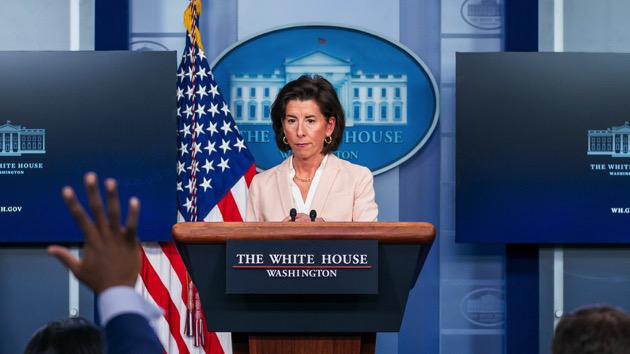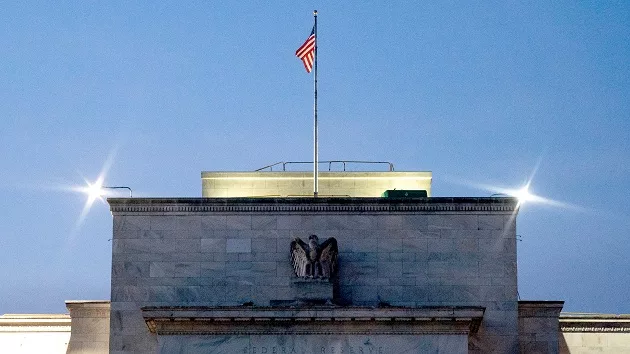
(WASHINGTON) — The Commerce Department is requiring companies that apply for tens of billions in government funding to make semiconductors to allocate some of the money they get to provide workers with child care, the department announced on Tuesday.
Tasked with allocating the more than $50 billion, including $39 billion in semiconductor incentives, the Commerce Department rolled out its application process for funding available through the CHIPS and Science Act passed last August.
“We will be requiring all applicants who are seeking more than $150 million in direct funding to submit as part of their workforce plan, a plan for how they will provide affordable and accessible accessible childcare for their workers,” Commerce Secretary Gina Raimondo told reporters on a conference call Monday. “We right now lack affordable childcare, which is the single most significant factor keeping people especially women out of the labor force. And so we need to see how these companies are going to be meeting their labor force needs.”
President Joe Biden has repeatedly pushed for affordable child care but has failed to gain enough support in Congress, even from his fellow Democrats.
The department said any semiconductor manufacturer that wants new subsidies has to “provide both their facility and construction workers with access to affordable, accessible, reliable, and high-quality child care.”
Semiconductors are computer chips essential for numerous everyday items, such as refrigerators and dishwashers, cars and smartphones and more. They are primarily made internationally right now, largely in Taiwan.
There is a five-part application process and rigorous application standards, according to Raimondo, including ensuring that companies that receive the funding will not expand in “countries of concern” for 10 years.
Raimondo said the Commerce Department has spent the last five months fine tuning the criteria for the application.
Awards will take the form of direct funding, federal loans, and/or federal guarantees of third-party loans, according to the Commerce Department which says the awards are designed to “complement—not replace—private investment and other sources of funding.” Applicants are strongly encouraged to bring capital to the table, they say and CHIPS for America awards will be made as soon as applications can be rigorously evaluated and negotiated.
Raimondo said, as part of the application process, companies applying for the federal money will have to “open the books” so the Commerce Department knows exactly where the money is going and for what it will be used for.
In a speech last week at Georgetown University, Raimondo laid out a vision for ensuring that semiconductors were made in America, saying that it is primarily a national security issue that they are manufactured overseas.
“Fundamentally, it’s about making sure that we make the CHIPS that we need on our shores, and fuel the innovation that we need to fuel in America so that we can have the moral authority and technological authority to lead in the world and maintain our national security,” she told students at Georgetown last week.
She said she wants the United States to have two large “clusters” of CHIP manufacturing plants throughout the United States when it is all said and done, and said the plan will help bring back American manufacturing.
“Each cluster will include a robust supplier ecosystem research and development facilities to continuously innovate impressive technologies and specialized infrastructure,” she said. “And, by the way, every one of those clusters will employ 10,000 Plus workers, American workers in high paying jobs.”
When Raimondo was governor of the nation’s smallest state, she promoted investing in trade workers, and the same practice she employed then she is employing now. She is calling on universities and colleges to train the nation’s workforce in chip manufacturing and development.
She said that if semiconductors get into the wrong hands, such as a bad actor like China or Russia — they can be detrimental to the U.S. and that 92% of all semiconductors made in the world are from Taiwan.
“Investments in chips allow us to gain an edge investing in innovation will gain an export controls and restrictions with our allies allow us to keep the edge and as I’ve said many of these technologies very bad things can happen if they get into the hands of malign actors,” she said.
Copyright © 2023, ABC Audio. All rights reserved.






